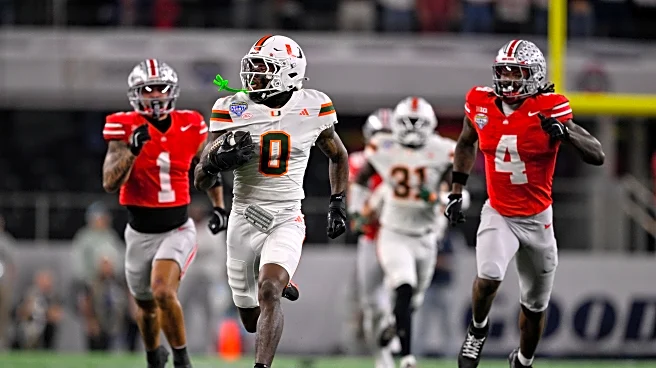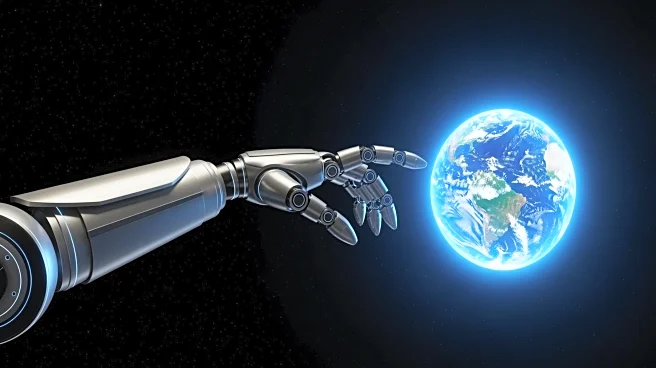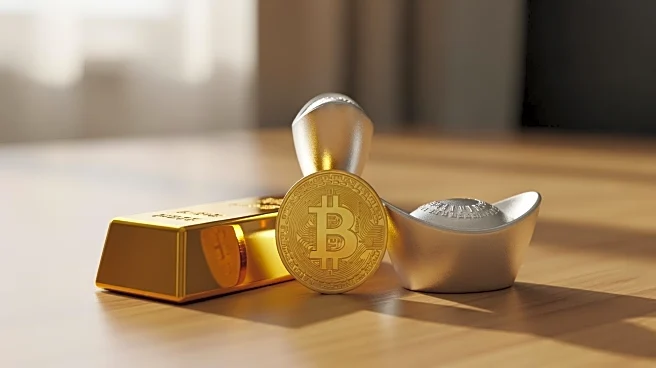What's Happening?
Shohei Ohtani, the Los Angeles Dodgers' two-way superstar, is preparing for Game 3 of the 2025 World Series against the Toronto Blue Jays. Ohtani, who signed with the Dodgers in December 2023, has been
a focal point of fan attention, particularly from Blue Jays supporters who chanted 'We don’t need you!' during Toronto's opening win. Despite the chants, Ohtani remains focused on his performance, having hit .224 in 12 postseason games with six home runs and 11 RBIs. He is also 2-0 with a 2.25 ERA in his pitching starts. Ohtani is set to face Shane Bieber in Game 4, with the series currently tied 1-1.
Why It's Important?
Ohtani's performance is crucial for the Dodgers as they aim to secure a World Series title. His ability to excel both as a pitcher and a hitter makes him a unique asset in Major League Baseball, drawing comparisons to legendary players like Babe Ruth. Ohtani's success could inspire a new generation of two-way players, potentially altering the landscape of professional baseball. His presence in the World Series also highlights the increasing globalization of the sport, with Ohtani being a prominent figure from Japan, following in the footsteps of other Japanese stars like Hideki Matsui and Ichiro Suzuki.
What's Next?
As the series progresses, Ohtani's performance will be closely watched, especially in Game 4 where he has the opportunity to make history by becoming the first pitcher to hit a World Series home run in 17 years. The outcome of the series could influence future player contracts and team strategies, particularly regarding the utilization of two-way players. Fans and analysts alike will be keen to see if Ohtani can maintain his high level of play under the pressure of the World Series.
Beyond the Headlines
Ohtani's journey and success in MLB underscore the cultural exchange and international talent integration within the sport. His achievements may encourage more international players to pursue careers in the U.S., enriching the diversity and competitive nature of baseball. Additionally, Ohtani's role as a two-way player challenges traditional baseball roles, potentially leading to strategic shifts in how teams develop and utilize their rosters.










